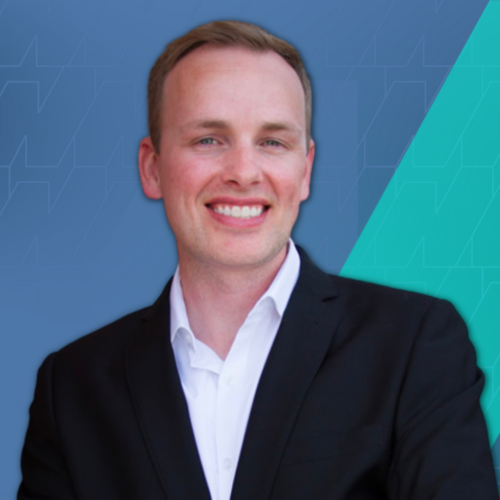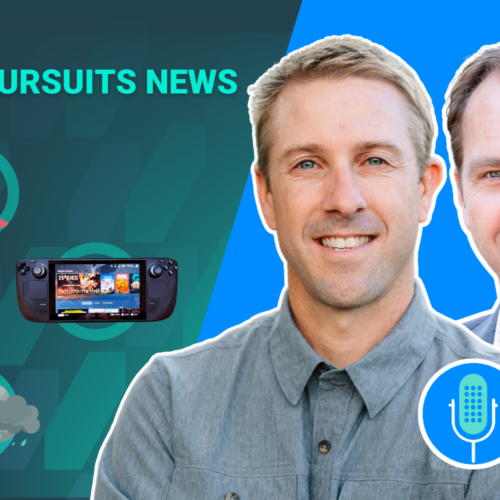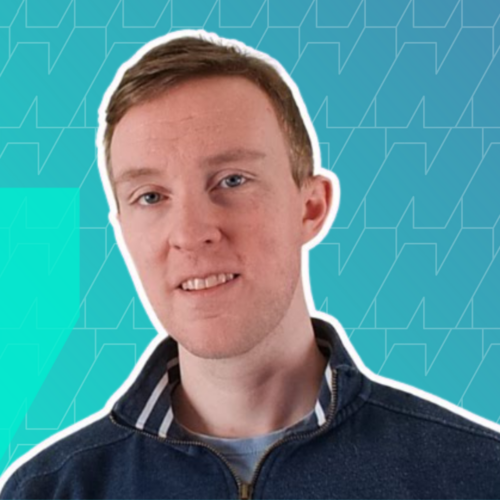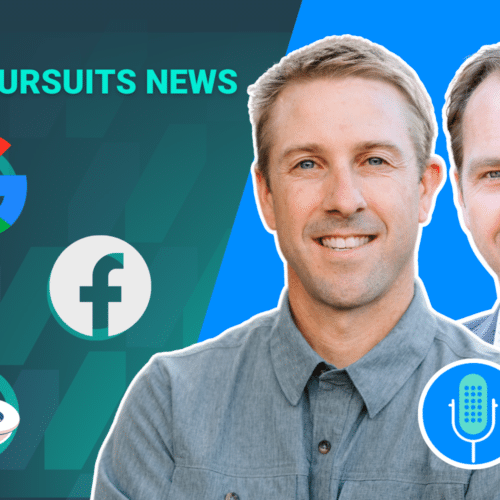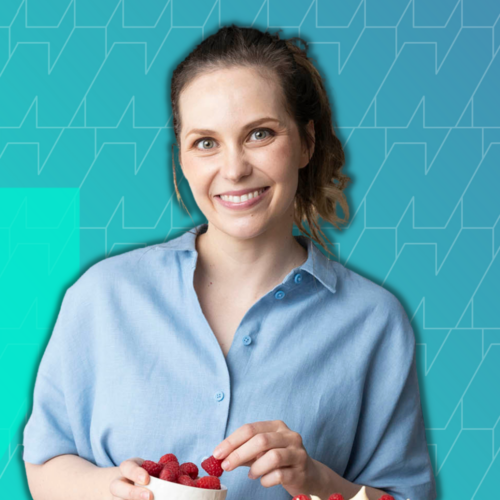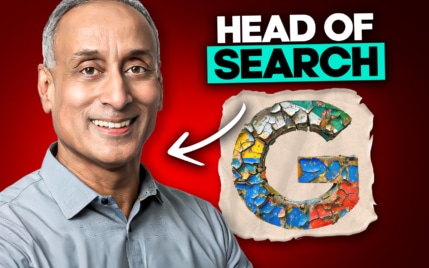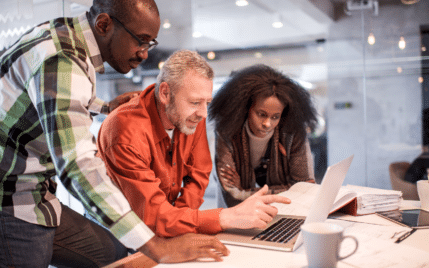How Gaurav Dhir Scaled a Website from $70 to $6,000 a Month in Just 10 Months
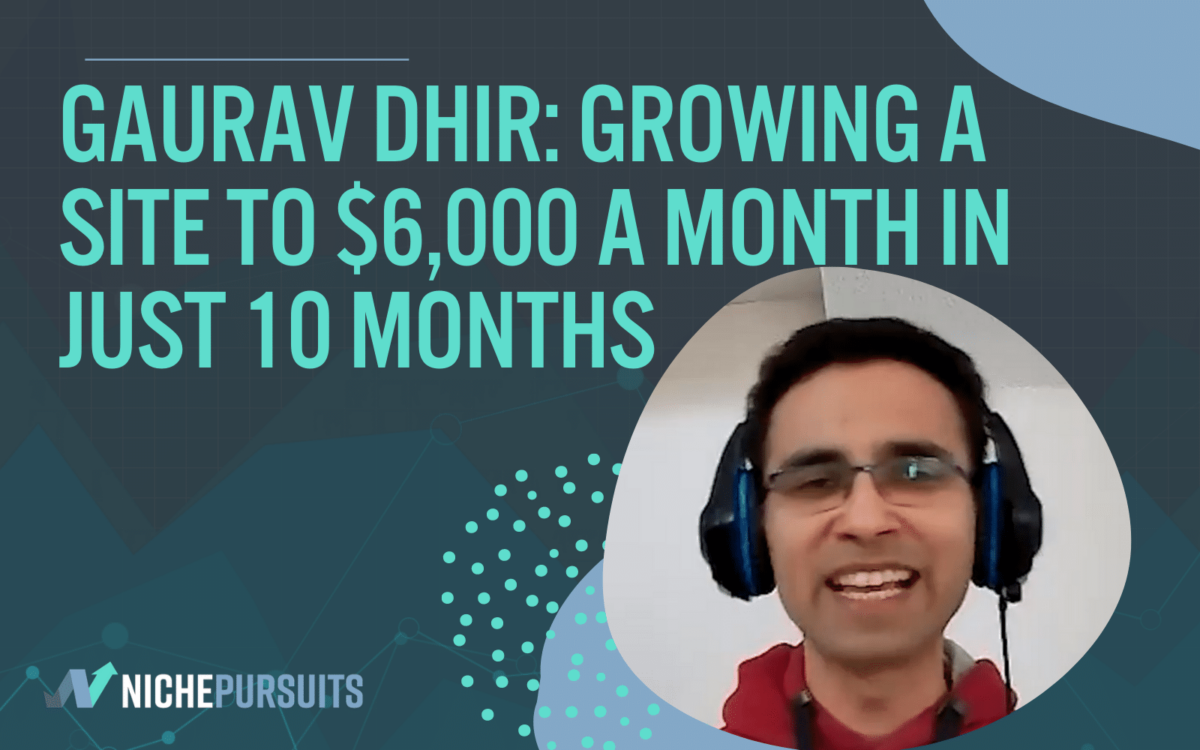
When you buy something through one of the links on our site, we may earn an affiliate commission.
How would you like to buy a site making $70 a month and then 10 months later its making $6,000 a month?
Well, that's the exact story we are going to tell with Gaurav Dhir. Gaurav has been building niche sites for a while, but he happened to buy a site from MotionInvest.com in April 2020.
Gharav also runs the content service called ContentForWeb.Site.
Shortly after Gaurav bought the site is when Amazon decided to change the commission structure, so his first month out of the gate was not a good one. But he decided to double down and just produce a ton of content.
In fact about 500 articles were produced in a period of 10 months. The site went from making about $70 a month to making over $6,000 a month.
We go over Gaurav's process for hiring writers, scaling content, on-page optimization, and even link building strategies.
Gaurav now has a portfolio of sites that he's been able to scale, so he has alot of strategies to share.
As he was scaling his content for his sites he hired a large team of editors and writers. Because he was producing so much content for his own sites, he decided to allow other people to buy content from his service.
That service that he recently launched is ContentForWeb.Site.
Gaurav is offering the Niche Pursuits audience a 5% discount when you use coupon code NICHEPURSUITS.
Check out ContentForWeb.Site here and be sure to use coupon code NICHEPURSUITS to save 5%
Watch the Full Interview with Gharav Dhir
Read the Entire Interview Transcript
Hey, Gaurav welcome to the niche pursuits podcast.
Gaurav Diar: Hey Spencer, thank you so much. Thanks for having me.
Spencer Haws: Yeah, it's great to connect. Thanks for coming on. Really excited to hear about your story and especially a recent experience you've had with a growing a niche site that you purchased, and we're going to dive into those details.
But before we do, maybe you can just give a brief introduction of yourself. What's your professional background or business background for listeners that may be not familiar with you.
Gaurav Diar: Hmm, sure thing. So going back, I was working for this, this big, my company. I did my corporate grind for a few years, and once I was done with that, moved out of that bought, an offline business and scale that grew that that's still with us.
It's doing fine. It's in a it's in the education space. Okay. So yeah, so we've scaled that when I say we it's my wife and me and people in systems, processes hired a few employees. So we've been lucky. It's kind of become. A lot more independent of us than when we had bought it and it has grown. So that was, that has been my professional background till about COVID.
And then COVID. So when COVID hit, I education business kind of suffered because of the schools. Well, having been closed in, in, in, the greater Toronto area, right. I had a lot of free time on my hands. So that's when I got thinking, you know, what should I do? And off my fence, who is, who has some, I would say good consulting jobs.
He suggested that by to buy an online business, I didn't really know that online businesses sell. Now, my trust with affiliate marketing goes back to 2013, where I started the website reviewing other. E-commerce websites. So e-commerce food was moving when I was in, I was in India back then and e-commerce was booming there, so we just reviewed them and then they got product.
And then one of the sites of protein that will just give you a commission then. And that was affiliate marketing for me. I didn't even know I was, I was doing back, but that was then, and I started exploring my options. And, the first quarter of 2020, when the COVID lockdown happened now, I realized that I can actually buy, you know, buy a business or buy a website or an asset with my credit card.
So I did that.
Spencer Haws: Okay. So we'll jump into that in just a second, but, so what, whatever happened to that first site that you started back in 2013? How long did that last?
Gaurav Diar: Quite a few months. So we got a few free PBS from, from these websites, sellers, but pay interestingly, we, I mean, we got. Like we promoted one particular service, which really took off and they still send us commission.
So the website's gone, everything's gone, but they're just there because we, like, we promoted their service at that point of time. And then, so it was, it was a cashback service, something like Rakuten. Yes. Sue someone with that. Yeah. Yeah. The promoted who joined became that very good, promoter.
So, whatever that person gets, we get a percentage of that. It's strange. Right? Last six years we've gotten it's hardly anything, but it just shows it can be very passive as
Spencer Haws: well. Right. I love those types of commissions that you're getting for years, right. Something that you did a really long time ago and it's still paying off.
So, that's cool. So that, that was kind of your first dip into building a website, made your first dollar online. It sounds like. and so you had been familiar with the world of internet marketing a little bit, but it sounds like you really didn't, maybe correct me if I'm wrong, you didn't build or.
do any type of affiliate marketing between then and now?
Gaurav Diar: Absolutely. As for, for the intervening, about six, six years, I was busy with my job and, I had, we had built a website for my wife. She's a, she's a published writer, so we've kind of maintained that. So I knew like I could, I could muck around, in the backend.
And so I knew those, I had those skills, but I never put them to any use. And it was, then it was, you know, when covered a lot of downtime to not have the time that I, but really got, got a little more deep into it.
Spencer Haws: Yeah. no, that's, that's very cool. And so, you sort of had this skill set or at least, you know, sort of the knowledge of the internet marketing world affiliate marketing world.
and then as you explained, COVID hit. Things changed in your existing business. It wasn't doing as well. And so you decided, you know what, I'm going to look at buying a business, thanks to your friend. so let's talk about that a little bit. what was your process for, deciding what to buy and where to look.
Gaurav Diar: Yep. So, bed to look was easy. I just Googled and, what Dubai? I, I didn't really know a lot. I mean, when you start out, you don't really know what you're doing now. but I was aware of that. So I started finding out what kind of businesses sell online and, unfortunately, or fortunately. The for me, I started dye to the top.
So I probably would have started at quiet light brokerage, and then figured that, you know, that's the, my league and it's a little expensive yes. To empire flippers. And I probably could have, I mean, in terms of affordability, I could probably afford it, something there, especially at the lower end, but I didn't want to start out as Dick.
And, at the same time I was listening to podcasts. I, came across niche, niche pursuits, and pretty much at the same time I came across motionless. So it was like, it was, destiny maybe, but both of them like popped up at the same time. So, and I saw your name there. So there was one trust signal that, that came my way.
So. Yeah. And the other thing was that I really liked the fact that, I, I wasn't buying it from a brokerage per se. At least at that time, the websites were owned by the company. So there was skin in the game. So that was, that was a big selling point for me. So that's how I started my, you know, my journey.
So it was like one thing led to the other.
Spencer Haws: Yeah. And so, let's dive into the details of the deal. how much did you pay for the site? How much was it making that sort of
Gaurav Diar: thing? That was, it was a starter drug excite. It was monetized using Amazon affiliates and it also had ads running at that time. I had.
I paid the six and a half thousand dollars for it. We'll make making a little over $200 a month. And it was about 10 days before the Amazon commission date. Cut. So,
Spencer Haws: yes. So that is tough. Wow. Okay. So let's maybe talk about that a little bit, right? you know, you buy a site it's historically making about $200 a month.
You put down a decent amount of money, which sounds like you put on your credit card if I'm not mistaken. Right. so I guess not a big cash outlay. You're assuming that you can pay off the monthly fee with the monthly earnings of the site. and, but then just 10 days later, Amazon hits, what does that feel like?
I mean, what do you do at that point?
Gaurav Diar: Yeah. Okay. So, just to, just to set things, right. I mean, I'm not one of those, like I don't subscribe to the fact that a guide guide is used to be paid, you know, used for a monthly fee. So I did pay off, paid off from know when the money was due. Yeah. Valid. When the commission rate, I really didn't know what to do.
I was like, I had my red scent and, I just took a step back. and, most of, most of the products that were kind of ranking at that time, In, in, in the category that came down from, I think, 8% to 3% or whatever, $7 to 3%. And then some of them came down even more. And the fact of the matter was that my wife was dead against us doing this because she said that less is focus.
We have something good going United education does, and let's find out what we can do. Nobody knew what COVID was back then. Nobody knew how long it lasts. We all taught that, you know, maybe a couple of months down the line, the, but the back of it, and then we will be, it will be all hunky-dory and so she was against it.
So I couldn't go to her, tell her that, listen, you know, I bought this and that's that's that's. No legislate lost two thirds of its value overnight. so it was, it was a tough, few weeks. And what really saw me through was where the podcasts, I'm very podcast person. So it was your podcast. It was a duck Huntington's podcast.
So I kind of dug in at that time, and, I wanted to repeat the same things that made us successful in our education business, which are voting systems, setting processes. and I, myself, I'm a good writer. I start off for editing the content there, but I realized that if I am to steal this, there's absolutely no way I can.
You know, I can scale this, lighting everything myself. So that's when I started, investing more money into it and building up a team of writers.
Spencer Haws: Okay. All right. So you basically doubled down on the business. things happened to Amazon, a rate commission, changed, but you doubled down, hired more writers, started to scale out that process of.
Sounds like finding, more keywords, writing, more content and publishing, right. So you bought it, it sounds like in April of 2020, roughly. cause that's when the Amazon commission rate, has changed, it was changed. And now we're in, February 20, 21. So 10 months, something like that, give or take, we're going to get all the details in between, but how's the site doing now?
Gaurav Diar: Oh, the site's doing fabulously. It's been, ven, you know, when we sit back and my wife and I discussed the feel that it was probably the best investment that we've ever made. And, so just to put things into context may was, so April goes, the commission date changed may was the first full month of owning that site.
We did $70 and, January, it cost a little over 6,000. So. Yeah. So it's, it's, it's been good. It's been, it's been good. I mean, it's been, it's been up and down this bed. I I've had, I w I would say, tough times. I, I shouldn't say tough times because I know people have had tougher times, but, yeah, the, the, the journey has been good.
we have invested heavily into the site. Let me, clarify that at the outset we have, 14, a decent bit of, personal savings before the site could sustain itself in terms of the content that we put in.
Spencer Haws: Right. Okay. So, going from $70 in the first month that you own it in may to $6,000 last month, that's huge in a period of less than a year.
So first congrats on that. and we're going to talk about what you invested in and, and things like that. I really, I just wanted to spend the majority of our time here talking about the exact steps that you took to go from $70 a month to $6,000 a month. Like, how did you do it? What was the sort of first steps that you took after buying the site that helped.
Gaurav Diar: Yeah, so, okay. So that the two things, first steps I took and the steps that had the most. Okay. I understand you the first few weeks, rather, a couple of more than the first few weeks, maybe a month or so. I was pretty much all over the place. I was trying everything I could. I thought that maybe what I was looking for was that magic.
Bill that will make the traffic certainly go from whatever 20, 3,000 visitors a day to maybe 200 visitors a day. And after a few weeks I realized does not happen. So I disallowed links. I changed teams. I, you know, I tried to look for ultimate affiliate program that was all over the place, basically.
And then at some stage I realized that, A site that has only about 20 yard posts, the dang photo, only so many, keyboards and infertile rank only for so many keywords. Then it'll get when there's so much traffic. So what do I do? I need to increase the number of posts so that it tanks for more keywords and hence gets more traffic and gets more commission.
So. I mean, the, the equation was very tour. So I started hiring people. I started hiring, writers and, it happens slowly, but, we had about 20 odd posts when we started to date as 573. And, no, none of the posts have been written by me. I've edited a few, but all the content has, on this site has been outsourced.
One of them has been written by my wife. So yeah.
Spencer Haws: Talk about that. that process of scaling content, what are the steps that you took? like maybe let's start with keyword research and then we'll talk about hiring after that. So how did you decide what topics you wanted to go after? So
Gaurav Diar: I just, so I, I believe in, this was taught to me by my last company and which is the concept of adjacency.
So if I'm, let's say talking about doll, I don't know, you know, dad, mobile phones. And I started talking about the mobile phones and then from green mobile phones, I maybe move to gray laptops. So change one thing at a time. So, using that concept, and the other thing I taught that said quite a few times on your podcast was the fact that the focus on low competition keywords.
So I focused on low volume, low competition, long tail keywords, and, once that started working out, then, I could move to a little more, or a little higher volume, and higher competition keywords and so on and so forth. So it kind of moved on from there. So basically the concept was, I mean, it's pretty simple keyword research published Eva research, published, keyword research, publish the success, the secret sauce for success lay in the fact that we were able to.
do the process, be able to publish as many articles as we could, because if I were to do this alone, I probably could not have done it. If I were to do this with, let's say, managing five writers, even then maybe I could not have achieved the scale. But what I did was I made an entire team. So.
Initially I hired a few writers, manage them myself. Then I, promoted my best idea to become the, the editor and have the writers work under him. He moved from stop it. He stopped from, being, just being a writer. To have to becoming, an editor per se. And, with that he, his income increased and my output increased exponentially.
And, we also instituted like, so some of our writers are from India, so we Institute instituted, and in, in India, devalues like. Like Christmas. So we instituted a bonus for, for that month behind Christmas bonuses and, normally, stuff that is used to motivate people, to get them to produce more.
Spencer Haws: So, so how did you find most of your writers? Was it through, you know, Upwork or other marketplaces or just personal contacts? What, what was the process for finding good writers? Okay. I
Gaurav Diar: feel I got, I would say I got like, I didn't hire anyone from fiber or a book, or it was all a hundred percent through personal contacts.
COVID meant that a lot of people, a lot of base skill people did have four very good jobs and they were willing to take up work outside of that. Normal jobs to, to sustain themselves. So what I did was I just made, you know, I had, I had the writing process, the research process and the writing process written down very, innovative, structured way.
And people I hired, basically, I looked at hiring intelligent people. They might not have written in the past, but when they saw that structured process, they were able to replicate it and become. Good good writers in the process. So many of the people that I hired for MBAs like me, they did not have any writing experience in the bus, but they, they took, they took to it like fish takes to water, then they did well.
Spencer Haws: Yeah. So, what about quality control? You know, I know listeners, maybe you're thinking, Oh, if somebody, you know, has English as a second language, you know, they're based out of India, maybe there's going to be some mistakes that it doesn't read well in an article. D did you ha w what did you do to ensure that you had, you know, quality control?
So articles sounded, you know, like it was written by a native English speaker.
Gaurav Diar: Well, I'm glad you asked this question. so just again, I put a few things into context. English is my third language, and many people would not be able to tell the difference I can, I can speak at as well as anyone whose first language is English.
Right. So, I figured, so there are a couple of things that, that played into this. So, like people, for example, you would. Associated with people who are similar to you. And I figured that if I being a non native English speaker can speak English well enough. So exactly the same thing about my wife. It is, it, it does, it is bound to be true that people within our network would be able to email have written in the past, but they may, they would probably be able to speak and write English.
As well as anyone, anyone else who's, who's a native English speaker and writer. So we were very, very conscious of that. We hired from our group and initially I was extremely hawkish with the. With quality control. I made sure that I asked it, I, I didn't read all the submitted articles fully, but if you go through the first about 10 to 15% of an article, you know how good the writer is and the just.
We just really promoted the heck out of, for our best writers we wanted, we gave them as much work as they could take the increase, their rates, and we just like hung on base strongly to them. And, yeah. And that really helped us, do the quality control. I'm very. They proud to say that, now the doc processing this fee, we can hire a non-native for writer and, throwing out content, which is as well as, as any, any native written content.
and just to scale things, I have, okay, this is very interesting. so to scale things, I have also hired a Canadian. Editor who is like, Oh my God, that guy's a, he's a grammar Nazi. Okay. So here you are, he would tell you, grammar rules that, that you would probably have learned in grade six, seven, eight, and B don't use them these days.
Right. But, he would know all that stuff and, and he's, he's the one who kind of takes care of like, he's my final law gatekeeper. And he samples, he checks and he could access both native written content and the non-native written content to be able to make sure that it is, it is of a certain quality.
Spencer Haws: Okay. Not very good. That's, that's good to hear a process. It's a process that people can probably implement, you know, it sounds like basically having, good people that, you know, they do good work and you trust their abilities. following up with writers, reading content and ensuring that it is the quality that the standard that you set, now.
Moving to more, on-page stuff. Was there anything else besides just, okay. You wrote the articles and you hit publish. was there anything that you did with the existing site or with the new content that you were adding as far as optimizing on page that you felt was really important
Gaurav Diar: or yes. Ben said, and I have to thank you for this.
I mean, Oh my God. Link whisper is. It's absolutely amazing. It's it's, you know, thank you. It's probably the best thing on planet earth after slice bread for affiliate there's. So I have to tell you the story. so we have like Vielight for other people as well. And, my VA, she publishes and today more?
No, not today, yesterday. So she sends out, she sends me an email. Okay. And it's, I mean, it's not her style to send out. Gordon Cortez thinker, but it was, it was a sort of a detriment that, I mean, look at this guy, he doesn't even have linguists for installing. What is he doing?
Spencer Haws: Do you want to play with the big boys?
You got to have Linquist for installed, I guess.
Gaurav Diar: It's it makes things so much more easy and, internal links are solvable important. I try to give this analogy to whoever I speak with it's like, imagine you're saying to someone else's house to look for something. Now, if, if one door does not logically lead to the next door, for example, you know, if after the living room, you.
You will not get into the kitchen or ups. If you go upstairs, you will not have the bedrooms, but what the pantry upstairs, who, how, how is the person going to find what is that we look for? So think of the Google bot like that it's come to your site. It does not have any idea. You know, who you are, at least for the first time.
If you don't lead it in the right direction. I mean, it's going to have a tough time. It's going to have a tough job. And also the resources that Google has, the crawling resources are limited, right? So their daughter spent the same resources where they get the information quicker and faster. So it's critically important.
And, Lincoln's pet has been a savior. we got that, pre or Linaro. in our entire journey. And what that meant was that, because of our scale and because of speed of the content that we were putting, we did not have to go back and do a lot of internal linking and the tools. I mean, I don't know how it is, how, how the backend, how the logic works, but it started figuring out what links best to this particular article, pretty soon.
And, that was one big thing that we did for on page and, I did get, I did get a whole of a whole lot of tools I got bought by God. So for SEO, no, not so far as your market news, but I'm not sure. I haven't, I've used them. I haven't used them as much as, as they possibly, you know, as, as, as much as they are, let's say that part of the strength would allow me to use them.
but yeah, LinkedIn has been very good, for finding full pages for making sure that. the pages are logically linked together and then within categories, I mean, you can make sure that you get the suggestion within categories within that particular category. And that's been, that's been quite helpful.
Spencer Haws: Yeah. No, very good. And so, you've got your on-page sort of optimize, you've got great written articles. You're doing you're interlinking with link whisper to make sure Google's finding everything and crawling things properly and hopefully ranking it better. based on, you know, some of those linking structures, What about off-page stuff?
Is, are you doing link building and if you are, what's working well for you.
Gaurav Diar: Mm. Okay. So that one is kind of, that that's, that's been something that's been a that's. I would say that that was missing in my equivalent. I tried a bit of, for how to help a reporter out. I wasn't very sure cause that's what I want.
I want, I mean, I want to my self in doing all these things, I want scale. So, I ended up hiring a service, so there was a local PR person who used to do that kind of vent. Okay. But, if I ever just put it on a scale of one to 10, I would be. I'd probably put, put my link building efforts and the results at five Sunday, some better at five.
I haven't really nailed down the process. I hired a shotgun skyscraper, a link building service, and it sits in the okay. But the kind of return on time and return on investment that I've seen the publishing content. I have not, honestly, I'm not seeing the same return with, with any of my link building efforts and, and the other factors that, some of my content.
So in my entire the thing, I also, focused on making infographics and, you know, having that as, as an, I did a standalone sort of thing that I can tap into and that has gotten us some content or some, some links. Yeah.
Spencer Haws: what did you do with those infographics? Did you submit them other places or, yeah.
Yeah.
Gaurav Diar: I just, I just, made sure that the top ranking pages that I have, they got the infographics first. And just by the fact that they get the traffic that they do, they started attracting it's been a slow process, but it's a slow and steady or a slow innovation process. Like these links will keep coming.
There's no stopping. As long as the infographics stay there, they'll keep coming.
Spencer Haws: Yeah, sort of the way that I felt about link building for a while is that if you're building a brand new site, you probably do need to put more effort into getting some authority, getting some links, making sure Google recognizes you, but if you buy an existing site that comes with that existing authority, you know, it's going to have some links.
And so it kind of puts you ahead. Of where you would be if you were to just build a site from scratch. And so, it really depends on the niche. You know, how many links you might need, but that's sort of the way I view it as if you're buying a site, it puts you so much further down the road because you probably can't just publish a bunch of content like you did.
And it's, it's much more likely to rank than if you have just a brand new site. Right. is that kind of how you view it as well?
Gaurav Diar: Yes. Yes. And that's, I mean, that was my biggest reason to, you know, like buy an existing website instead of starting one from scratch. You start you're already so much ahead in the game.
Spencer Haws: Yeah. So just to kind of wrap things up, we talked about the earnings that you had. what about traffic? Where did it start and kind of what traffic numbers are you doing now?
Gaurav Diar: So people, when we started, when I took the site over, it was doing a little over four, maybe 600, 600, 500 to 600 visitors a month, a little more than that.
If I'm not mistaken. And now we are doing, we are regularly across in 2000 visitors a day. so that's, that's been good. And, yeah.
Spencer Haws: And, and what's the breakdown in earnings between, like it sounds like Amazon associates. Are you also doing display ads or anything else?
Gaurav Diar: Oh, no. So that has been the story.
I applied for, so when I took the side to it, I applied for ads since I got, I don't know why. I think it was bang in the middle of COVID that I got, I got rich. I mean, I had probate for a long time and they finally said that you're rejected. And then I said, you know, why bother? I mean, I calculate the calculator, the RPNs et cetera.
And as I said, I'd probably not bother with it till I get to a certain point. And just before black Friday, I applied again, got through, and did not use any of the ad networks. And then some, some extra clicks happen and then the account got suspended. I said, I'm not going to be bothered with it.
This is right. And then finally, I applied again in January and, I got two again. And, now I've, I've, I think we've qualified for the media vine threshold. So we've applied to me your wine, but all the entire traffic so far is Amazon associates. And, hopefully if media wine comes through, then I'll have, I'll see a bump there already.
Spencer Haws: Okay. Yeah, I would expect that, adding some display ads probably would give you a little bit of a bump, hard, hard to know, how much, but, very cool. So, congrats again on the success, in terms of you've you've taken the site from, you know, 20, 30 visitors a day to now 2000 visitors a day, something like that.
so huge trajectory sounds like mostly due to all the new content we've walked through that process. anything else sort of either SEO wise or just any other reason you think your site has done well, any sort of additional strategies that you'd like to share?
Gaurav Diar: Well, that's it for the most part, I think, if, if let's say anyone's wanting to buy a site and start out, I would.
Very very strongly focused on two things. One is, publishing content as, as much, as much as my budget allows published content and to work on the internal structure, make sure that it's arranged nice and veil. The categories are properly laid out. The tagging is done well, and the internal linking is done well.
These, these two things are directly under your control. Building links is definitely something you would want to do. But I would say it can wait. It will come. It will come at a later stage, but, I would focus on these two big things for me. Yeah.
Spencer Haws: So what kind of comes next for your site or your portfolio?
Are you going to go back to motion, invest and buy another site? are you going to just focus and grow this one? Are you going to. Kinda yeah. Buy or build more sites. What's kind of the plan for your affiliate marketing empire.
Gaurav Diar: Yeah. So the year, and so since, April or other letters in September, so April to September, I took to scale the site and then, As, as it was doing well, I got approached by a few people.
I ended up buying a few sites, you know, in personal deals. And, but what I want to now do is, to my top two sites, which provide, you know, the bulk of the income, I want to move them to professional management. In fact, I've already kind of spoken with someone to manage it professionally and, My other five sites, which are much smaller in size, and partnering up with someone I know and respect.
And, she's done a good job elsewhere to kind of my investment, my content writing skills and my content. I set up good management skills put together. So we are partnering, partnering up on. These two. I mean, so I split my portfolio, the doctor being professionally managed and the other five being managed in a partnership.
Okay.
Spencer Haws: All right. Very interesting. So you're, you're certainly setting up your systems in place that you can, either scale more right through professional management or partnership, or just free up your time, to do other things. And, I know we talked a little bit, before our podcast, and it sounds like you also started a content writing service, essentially, right?
Why don't, why don't you give us the story of that, how that came
Gaurav Diar: about? Yeah. So how it came about is, about, around December last year, we figured their time doing a million words a month, a little more than a million words a month. And, I figured that the sites to not need as much content now.
And, I, I, I was in touch with, I was in a lot of Facebook groups and I was in touch with it. A few other website owners and I approached them, will they be willing to buy content of me? And everyone said, yes, and it's relatively new, but we are already starting to get repeat orders. We have, I'm doing a little over a million words of that.
About half of half of it kind of goes down to my sites right now, half of it is, you know, available for, for others to take up and, A lot of it has also gotten taken up. and now I'm looking to hire more writers scale this part of business operation, and, get a few more, website owners to kind of, all your content.
From, from my writing service. And, it's a sense that it's not only a writing service by the way. so I kind of productized not only my writing service, but also my infographic, maintenance of this. So what we do is it's pretty cool. If you have, let's say an information article, you just send us the link and you have a process by which.
Outcomes on the other end. And then for graphic, you don't have to give us a brief, you don't have to give a same thing. is it the best design infographic in the world? Maybe not, but what it does is you get a very well designed or fairly well designed infographic on Canva that you can then give the final touches, saves your whole lot of time.
And it's an independent site for a link magnet, which as long as it stays on your site invites or gets interested people to link posts.
Spencer Haws: Right. Yeah. So it's really interesting. I mean, you essentially scaled up your own writing process for your own sites. You saw that you're doing almost a million words a month, or at least had the ability to do that.
And then, yeah, just kind of getting the word out of, Hey, anybody else want to keep my writers busy? Right. I've I've got the system in place. Let's keep the wheels moving. and so, very cool that you've been able to start that. where should people go? Like what's the website, if they're interested in checking out your business.
Gaurav Diar: Yep. So the website, that's a, it's a basic site. You can just go to content for web.site, which has content for web dot S I T E. And all the services are, are listed there and, your listeners can get a 5% discount. They just need to enter niche pursuits all in caps at checkout. And, the 5% discount will just get applied that.
Spencer Haws: Cool. Very good. Yeah. If people want to check that out and get the 5% discount on content services or infographic services, just to input that coupon code niche pursuits. that would be great. but other than that, Gorav, it's been great chatting with you hearing about your business, how you built this one site, how you've scaled that into other things now.
any final. Words, any final advice just for anybody looking to either start a business or grow a website, or just anything else that you'd like to leave us with? Yeah.
Gaurav Diar: especially, I would say that I'm, I'm heavily biased, but I would say that, if you have a little bit of a budget, Firstly by a stocker site, like, do your research go with, go with people who are established people like, like motion nest who know what they are doing.
It might be, you know, you might not buy something at 30 X, but the five X, but you'll definitely get a very good asset that can, that can grow that in scale. So, instead of starting out, spend a little bit of money you're. All said and done. If you're spending what three, four, $5,000, you're still buying it off your, off your credit card.
So that's one. And, remember that you have two hands, one head eggs and bringing four hours. You can't do everything yourself. So. Be open to outsourcing the open to building up a team, you know, be it via your writing, be it your link building or design, build your website, setup, whatever, whatever you feel that you are not good at figure that out, get help debt and whatever you're good at just double down on that.
Spencer Haws: Those really are great tips, for people that are looking to grow, start or scale a business. so again, thank you for coming on the niche pursuits, podcast, sharing your thoughts, your wisdom, your journey. Really appreciate
Gaurav Diar: it. Thank you. As soon as things that thanks for having me. All right. Thank you. . .
Want to learn step-by-step how I built my Niche Site Empire up to a full-time income?
Yes! I Love to Learn
Learn How I Built My Niche Site Empire to a Full-time Income
- How to Pick the Right Keywords at the START, and avoid the losers
- How to Scale and Outsource 90% of the Work, Allowing Your Empire to GROW Without You
- How to Build a Site That Gets REAL TRAFFIC FROM GOOGLE (every. single. day.)
- Subscribe to the Niche Pursuits Newsletter delivered with value 3X per week
My top recommendations
